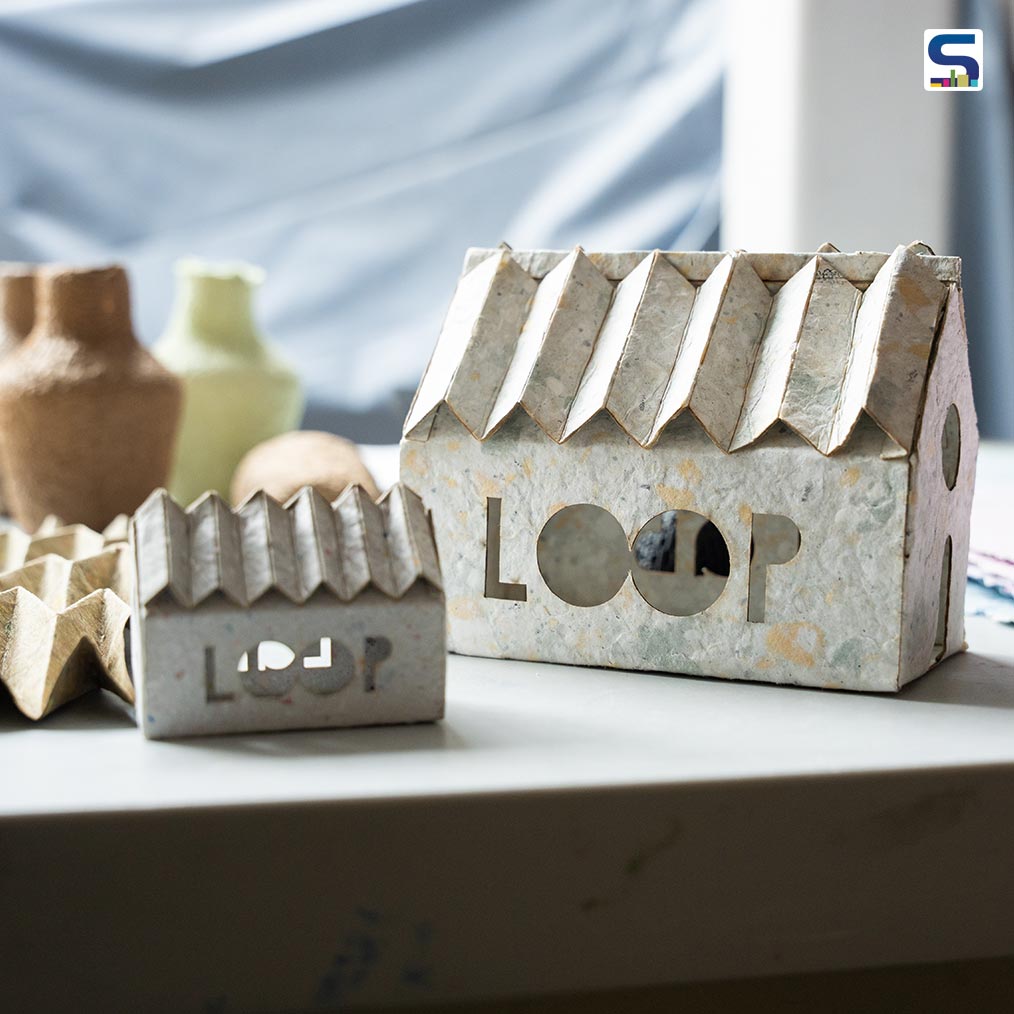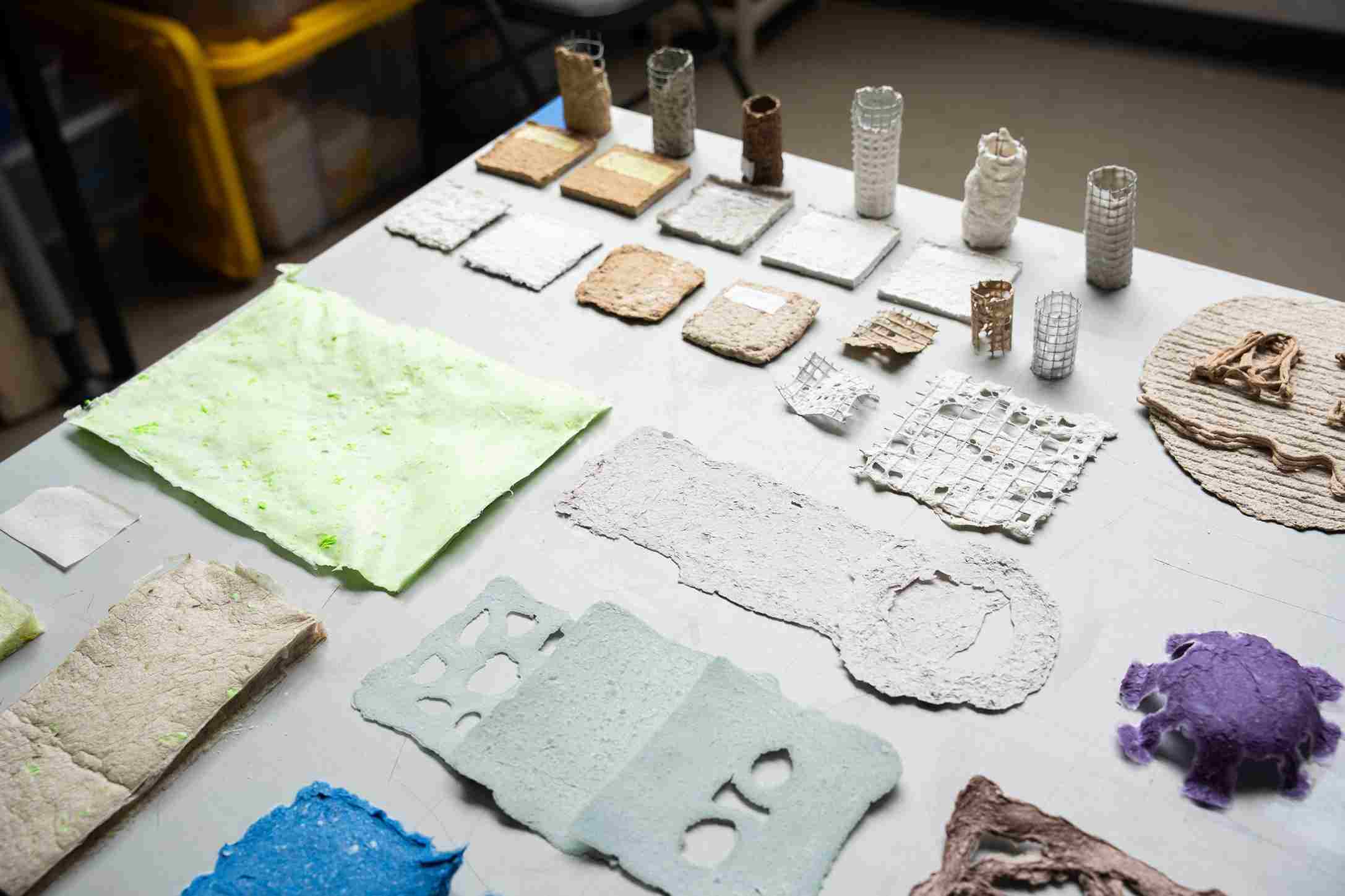
The Rhode Island School of Design (RISD) recently introduced an innovative sustainability initiative called Loop Lab, a pilot project that reimagines waste as a creative resource by transforming discarded campus materials into new, usable forms. Conceived and led by Jennifer Bissonnette, Director of RISD’s Edna W Lawrence Nature Lab, Loop Lab aims to cultivate a culture of circular design thinking while addressing the pressing issue of institutional waste generation. Know more about it on SURFACES REPORTER (SR).

Once processed, these reimagined materials are distributed free of charge through Second Life Exchange, RISD’s student-run material library.
Circular design in action
At the early stage, the pilot focuses primarily on paper waste, chosen for its ubiquity and potential for creative reinvention. Paper is something that every department produces and it’s the lowest hanging fruit, according to Bissonnette. From printmaking blotters and graphic design boards to cotton muslin, denim scraps and drawing pads, the project collects diverse material waste streams from departments across the campus. So far, the team has reportedly amassed over 500 pounds (a quarter ton) of paper and fiber waste, gathered largely during the summer when studios remain open for graduate and continuing education programs.
The process involves a thoughtful collaboration between students, faculty and the Nature Lab team. Under the guidance of project coordinator Haley MacKeil, who also teaches in the Experimental and Foundation Studies division, student research assistants play a crucial hands-on role in collecting, sorting and processing materials. They weigh, shred, soak and press discarded paper and fabric into new forms such as pulp slurry, paper sheets, bricks and clays, ready for creative experimentation.

They weigh, shred, soak and press discarded paper and fabric into new forms such as pulp slurry, paper sheets, bricks and clays, ready for creative experimentation.
Roadmap ahead
The project is reportedly supported by a USD 100,000 grant from the Maxwell/Hanrahan Foundation, which funds innovative individuals and projects at the intersection of art, science and environmental stewardship. For the participating students, Loop Lab is as much about storytelling as it is about sustainability. Student researchers including Ankita Bhat, Sophie Kaplan-Bucciarelli, Disha Dharesh Kumar Rajashekariah, Henry Ding and William He spent their summer transforming discarded materials into prototypes like vacuum molds, paper foams and experimental composites. Importantly, the team maintains a commitment to biodegradability, avoiding plastics and using natural binders such as gelatin and cornstarch to ensure that new materials remain environmentally responsible.
Once processed, these reimagined materials are distributed free of charge through Second Life Exchange, RISD’s student-run material library. The goal is to close the loop, which is what one department discards becomes another’s creative starting point. By fall semester, Loop Lab anticipates collecting far more waste as classes resume, expanding the project’s reach and impact. Loop Lab’s experimental framework also sets the stage for future expansion. While the pilot currently focuses on paper, the team envisions future iterations that explore textiles, plastics and even organic waste. For example, discarded dining hall ingredients could be transformed into natural dyes or inks, further integrating sustainability into the campus ecosystem.
The materials produced by Loop Lab are already being used in model-making, sculpture and digital fabrication processes like laser cutting and 3D printing. Students are encouraged to experiment freely, testing the limits of durability, texture and form while learning about material cycles and sustainable design principles.
Image credit: RISD